Two M'sians killed in Bangkok bombing identified, 123 injured
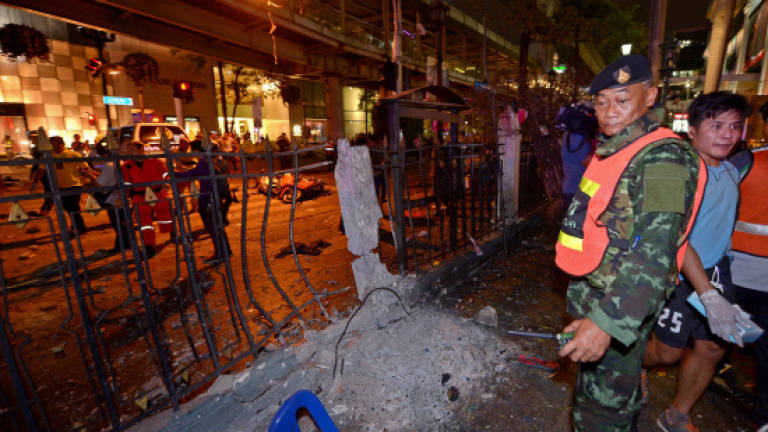
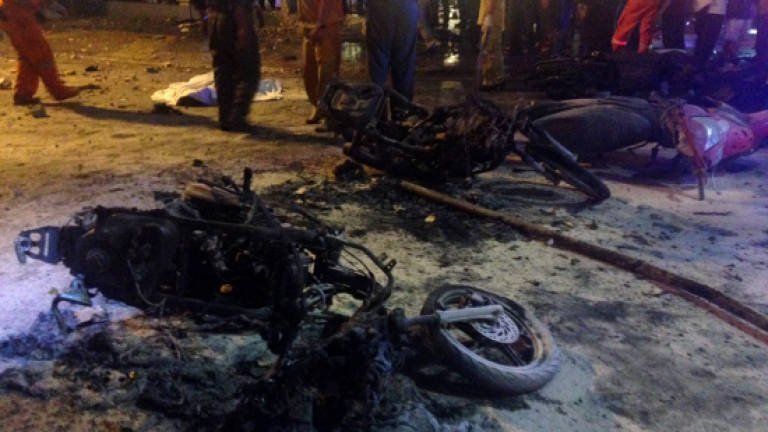
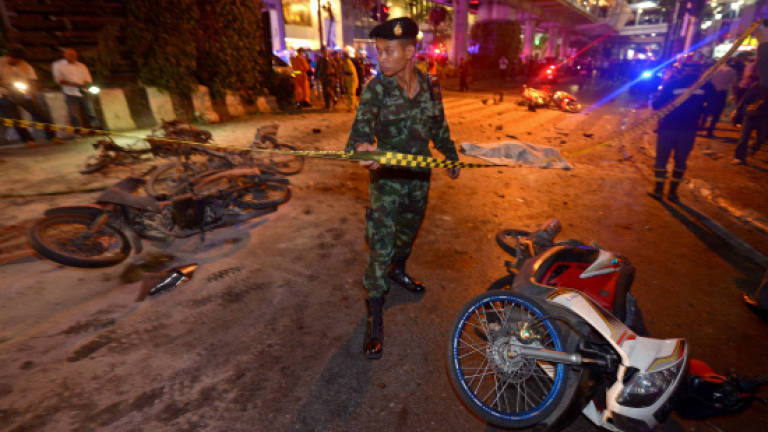
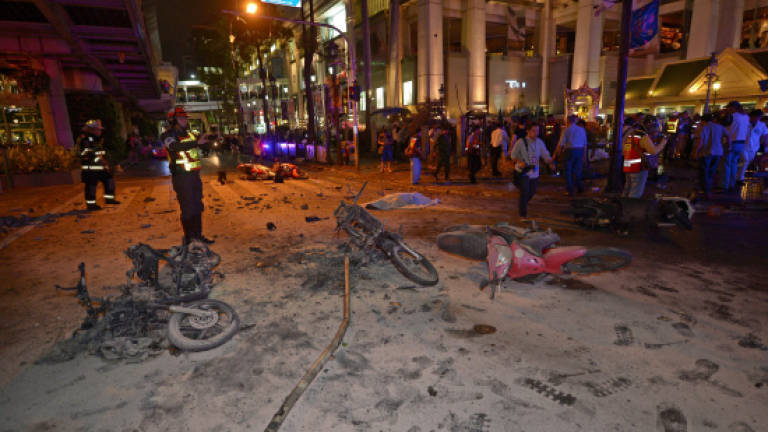
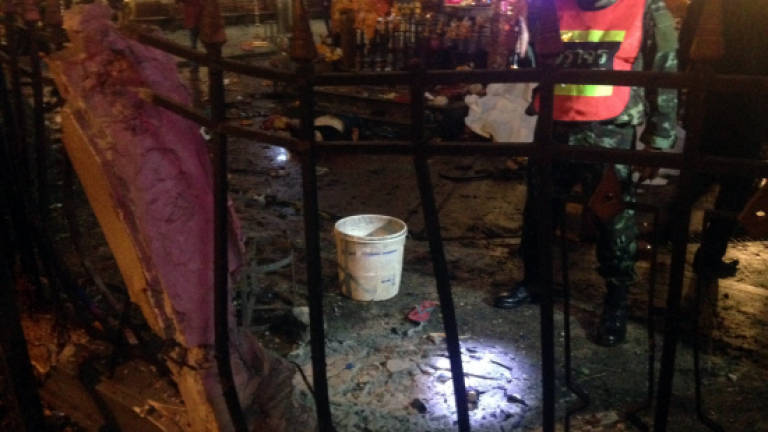
BANGKOK: Ministry of Foreign Affairs have confirmed the death of two Malaysians - Lim Saw Gek and her son, Neoh Jai Jun - following the bombing incident in Ratchaprasong District, Thailand.
The bodies of the victims are currently being placed at Police General Hospital in Bangkok for post mortem.
Bomb squad experts Tuesday sifted through the debris of a blast at a Bangkok religious shrine where at least 21 people were killed and scores wounded in an unprecedented attack on the city.
The hunt intensified for the bombers as shocked Thais struggled to come to terms with the scale of the carnage, which struck at dusk as worshippers and tourists thronged the streetside Erawan Shrine in the city's commercial heart.
"The bomb aimed at killing as many people as possible as the shrine is crowded at around 6 to 7pm," Police spokesman Prawut Thavornsiri told AFP early Tuesday.
"The death toll is now 21 with 123 wounded... of the dead 14 were killed at blast site," he said, adding the bomb probably contained three kilogrammes of explosives.
Of the wounded, Thais made up the largest number with 42 being treated, followed by 28 Chinese. Japan, Hong Kong, Indonesia, Malaysia, Maldives, Oman, the Philippines and Singapore all had one or more nationals wounded, according to the list.
The attack drew quick expressions of grief from around the world, with UN Secretary-General Ban Ki-moon's office releasing a statement saying he was shocked.
There was no immediate claim of responsibility for the blast at the Erawan shrine at a major city-centre intersection. Thai forces are fighting a low-level Muslim insurgency in the predominantly Buddhist country's south, but those rebels have rarely launched attacks outside their heartland.
"The perpetrators intended to destroy the economy and tourism, because the incident occurred in the heart of the tourism district," Defence Minister Prawit Wongsuwan told Reuters.
National police chief Somyot Poompanmuang told reporters the attack was unprecedented in Thailand.
"It was a pipe bomb," Somyot said. "It was placed inside the Erawan shrine."
The shrine, on a busy corner near top hotels, shopping centres, offices and a hospital, is a major attraction, especially for visitors from East Asia, including China. Many ordinary Thais also worship there.
The government would set up a "war room" to coordinate the response to the blast, the Nation television channel quoted Prime Minister Prayuth Chan-ocha as saying.
Two people from China and one from the Philippines were among the dead, a tourist police officer said. Media said most of the wounded were from China and Taiwan.
"It was like a meat market," said Marko Cunningham, a New Zealand paramedic working with a Bangkok ambulance service, who said the blast had left a two-metre-wide (6-foot-) crater.
"There were bodies everywhere. Some were shredded. There were legs where heads were supposed to be. It was horrific," Cunningham said, adding that people several hundred metres away had been injured.
"I heard a very loud bang, it made the whole building shake so I ran outside to see what had happened," Panupan Chansing, 20, a hotel worker at the nearby Grand Hyatt Erawan, told AFP late Monday.
"I saw bodies lying on the ground and I saw vehicles on fire. I feel very sad and sorry that this has happened to Thai people... I'm scared."
Political Tension
At the scene lay burnt out motorcycles, with rubble from the shrine's wall and pools of blood on the street.
Earlier, authorities had ordered onlookers back, saying they were checking for a second bomb but police later said no other explosive devices were found.
Authorities stepped up security checks at some major city intersections and in tourist areas. The city's elevated railway, which passes over the scene, was operating normally.
While initial suspicion might fall on Muslim separatists in the south, Thailand has been riven for a decade by an intense and sometimes violent struggle for power between political factions in Bangkok.
Occasional small blasts have been blamed on one side or the other. Two pipe bombs exploded outside a luxury shopping mall in the same area in February, but caused little damage.
Police said that attack was aimed at raising tension when the city was under martial law.
The army has ruled Thailand since May 2014, when it ousted an elected government after months of at times violent anti-government protests.
In Washington, the US State Department said it was too soon to tell if a blast was a terrorist attack. Spokesman John Kirby said authorities in Thailand were investigating and had not requested U.S. help so far.
He said US officials were working with Thai authorities to determine if any US citizens were affected by the blast.
Ratchaprasong intersection in central Bangkok was a location of both protest site for the Red Shirt in 2010 and PDRC (The People Democratic Reform Committee) protest led by Suthep Thuaksuban in 2014, that eventually led to a military coup and removal of ex-premier Yingluck Shinawatra.
Despite the bombing located not far from the Chitlom station of the rail service of Bangkok Train Service or popularly known skytrain, the service still continues.
Major Gen Weerachon Sukhonthapatipak, the deputy government spokesman said Prime Minister Gen Prayuth Chan-ocha had already been informed of the bomb explosion and he had instructed the Explosive Ordnance Disposal team to go to the area.
He said, so far, there was no plan to close schools and banks near the area. – AFP, Reuters, Bernama